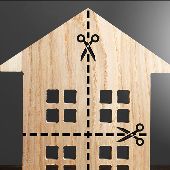When unit owners refuse to pay their assessments, it puts everyone in a bind, condominium assessment liens might be one way?
Florida Condominium Associations and Homeowners Association Boards have many challenges in managing the needs of their communities. As a result, when unit owners refuse to pay their assessments, it puts everyone in a bind. Fortunately, there is a key tool that you may use in Florida to compel payment of the monies due: a condominium assessment lien.
Collecting Assessment Revenue Through A Condominium Assessment Lien
There are steps that must be taken in order for a condominium association lien to be properly filed. This is a brief summary of the steps:
*A condominium association’s governing documents in conjunction with Section 718.116, Florida Statutes, are the genesis of the condominium association’s authority to impose and perfect assessment liens against individually owned units within the community.
Delinquency Notice
This is not a requirement but good collection practices dictate that the association attempt collection efforts prior to engaging a law firm. Sometimes the unit owner may have just forgotten to place the payment in the mail. These delinquency notices can help remind the unit owner of their payment obligation.
Notice of Intent to Lien
The first statutorily required step is to send a formal letter from the law firm announcing the association’s intent to place a lien on the unit for the failure to pay. The letter has very specific requirements and should be sent from the association’s attorney. If a condominium, the association must wait 30 days from the date of this letter to record its lien. The time frame for a Homeowners Association is 45 days.
Claim of Lien
This is the actual document that gets recorded in the public records and encumbers the unit. It must have the Unit legal description, the owners name and a description of the delinquency. There is a form in the statute and Florida law requires that this lien be created and recorded by the association attorney.
Notice of Intent to Foreclose
After the lien is recorded, another notice must go to the unit owner announcing the intention to take the unit by legal process. The association must also wait an additional 30 days after this notice is sent. 45 days for HOAs.
Foreclosure Action
This is the lawsuit that will take the unit. A Lis Pendens is recorded when the lawsuit is filed to provide public notice of the legal action on the lien. Most lien foreclosure actions result in either settlement of the claim of taking of the unit. Defenses to lien foreclose actions are tough to prove and seldom release the unit owner from the obligation to pay the assessment.
Time Is not on your side, dont delay if this is the action you are taking?
It is imperative that all these steps are followed to the tee or the lien may be dismissed outright. In addition to these steps, Florida condominium associations can take additional steps such as suspending unit owner common element or amenity rights. This is done by alerting the unit owner of the delinquency and then if amount is greater than $1,000 and 90 days the Board may consider the suspension of voting rights at a board meeting. The unit owner will then receive notice of the suspension after the vote has occurred.
Florida Condominium Associations
Under Florida State Law, only an attorney may draft a condominium assessment lien, because it contains a legal statement. Once the lien is filed, there is a one year timeline for Florida condominium associations to file suit. If the Association misses that deadline, the whole lien process will have to be redone. Therefore, it is paramount that the steps are followed properly, and in a timely fashion, or you may forfeit what is due to the community.
Remember to contact your Attny, Ask them for the best options for your communities!
Tags: Condo and HOA Accounting, Condo and HOA Assessments, Condo and HOA Collections



 What is in a Statement of Receivables
What is in a Statement of Receivables
 There are three basic approaches to manage finances. There is no right method for every association. Each HOA is different and may find that one method of accounting works better for them than another.
There are three basic approaches to manage finances. There is no right method for every association. Each HOA is different and may find that one method of accounting works better for them than another.
 The Attorneys and Staff in the
The Attorneys and Staff in the 











